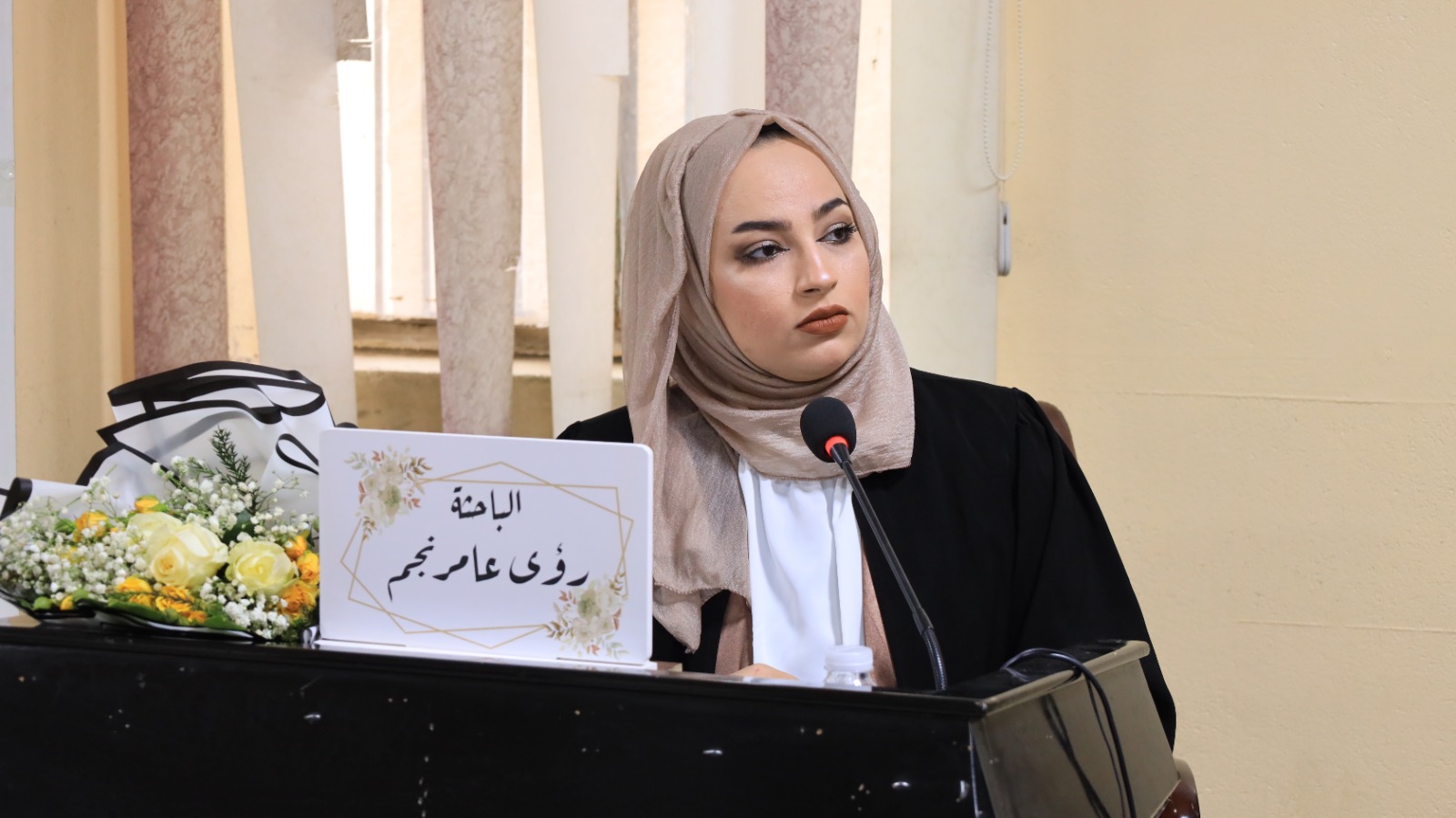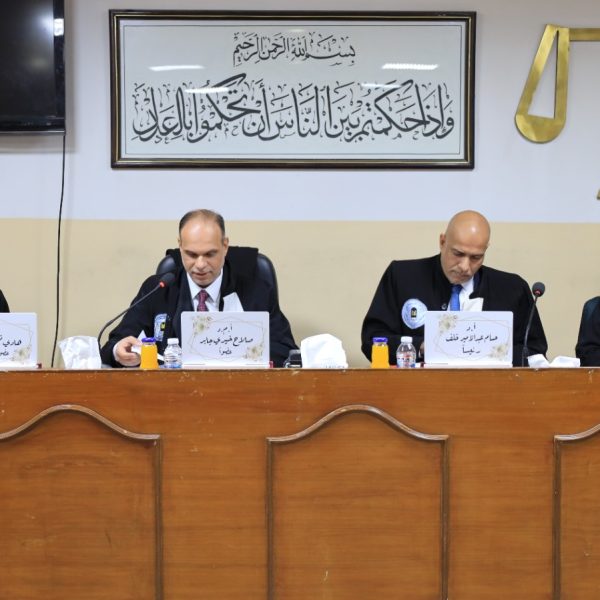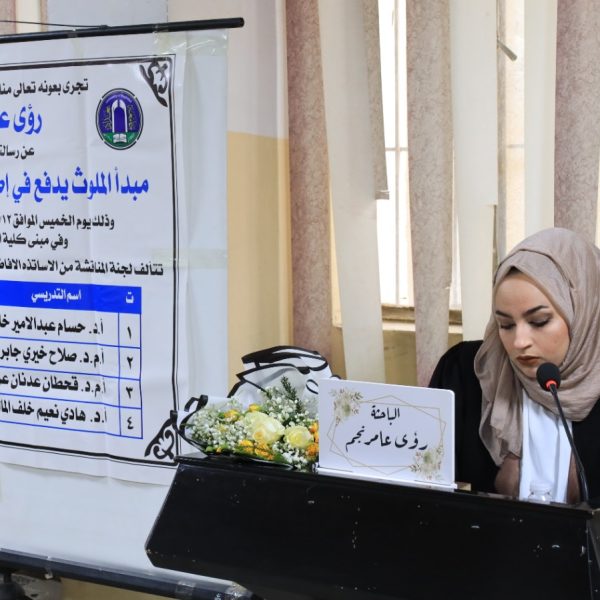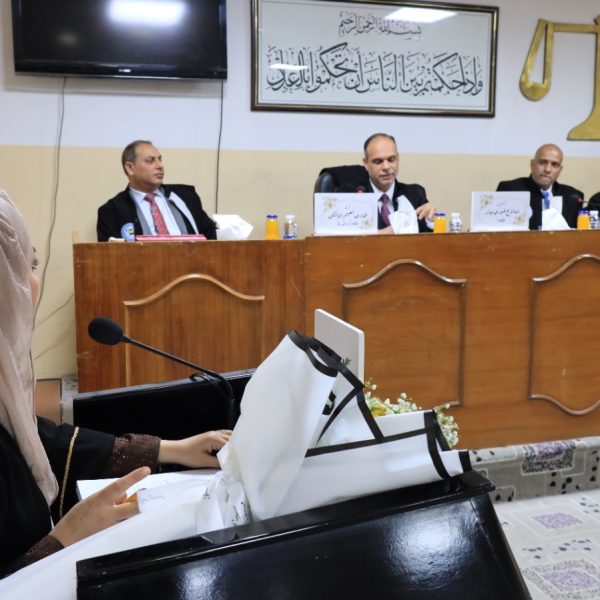The College of Law at the University of Baghdad discussed a master’s thesis in the field of international law by the student (Ruaa Amer Najm) titled “The Polluter Pays Principle in the Context of International Environmental Law,” on Thursday, December 12, 2024, in the model courtroom at the college.
The discussion committee consisted of the following members:
Dr. Hussam Abdul Amir Khalaf (Chairman)
Dr. Qahtan Adnan Aziz (Member)
Dr. Salah Khairi Jabir (Member)
Dr. Hadi Naim Al-Maliki (Member and Supervisor)
The thesis aimed to highlight that the “polluter pays” principle is one of the most prominent economic mechanisms adopted by countries, as it is one of the key principles established by international law for environmental protection. Therefore, it has become essential to find new methods and mechanisms that are more coherent and suitable for addressing environmental damage. It also seeks to clarify the various alternatives in terms of tools and approaches at both the international and national levels, so they can adapt to environmental issues and achieve a more suitable response to environmental problems, addressing them by providing protection and remedying damages.
The thesis included three chapters. The first chapter addressed the “polluter pays” principle, the second chapter discussed the “polluter pays” principle in international law and defined its content, while the third chapter focused on the practical framework of the “polluter pays” principle.
The thesis concluded with several recommendations, the most important of which are:
1- The pursuit of concluding more regional and international treaties or agreements that explicitly commit to the principles of international environmental law, particularly the “polluter pays” principle, as a basis for holding the party responsible for harmful activities accountable for compensation and remediation of damages.
2- Urging countries to adhere to international agreements regarding environmental protection and to formulate laws related to public health that achieve the principle of international cooperation in the field of sustainable development.
3- Calling on countries, especially developing ones, to adopt environmentally friendly and appropriate technologies, to develop training for human resources in the field of pollution control, to raise environmental awareness, and to support technological advancement and scientific research in line with the requirements of sustainable development.
4- Preventing and holding industrialized countries accountable for using harmful and inappropriate technologies in all areas of development, while encouraging the use of environmentally friendly technologies.




